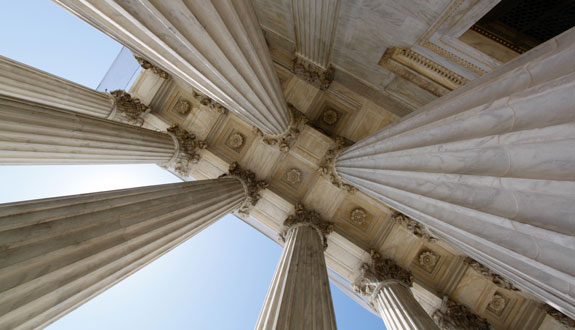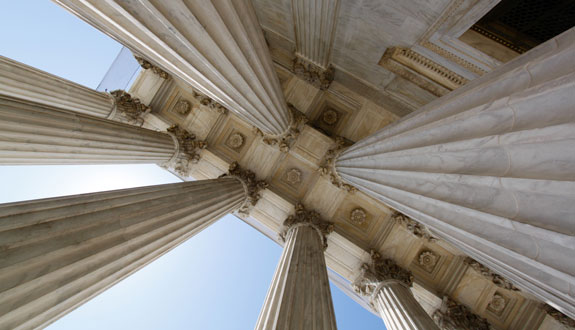The Major Cases on SCOTUS’s Docket
- by
- Oct 03, 2017
- News
- Reviewed by: Matt Riley


The Supreme Court’s new term, which just started on Monday, is going to be marked by several extremely important cases. If you’re interested in the law, these should provide a lot of food for thought. This post is going to run through some of the cases coming up to the Court.
1. Gerrymandering: Gill v. Whitford
One of the first cases on the Supreme Court’s docket is a case about gerrymandering. If you’re like I was before law school, you’ve heard that word a lot and pretended to know what it means, while vague memories of your high-school government classes floated around in the back of your head. Essentially, gerrymandering is the process by which voting districts are redrawn following the census. The big dispute here is whether or not people’s equal protection rights are being violated when they are put into districts to, essentially, ensure the majority party stays in power. In the past, the Supreme Court has stayed out of the gerrymandering arena, declaring it non-justiciable since there is no real standard for determining how much politicization is too much. The case going to the Court now will attempt to provide a workable framework for evaluating when redistricting goes too far.
2. Religious Freedom: Masterpiece Cakeshop v. Colorado Civil Rights Commission
Masterpiece Cakeshop sounds like it could be a mash-up of “Masterpiece Theater,” “Cupcake Wars,” and “The Great British Baking Show.” Alas, it is not. Instead, it is a case through which the Court will rule on religious freedom. I’m sure you’re at least peripherally aware of the underlying facts — a baker refused to make a cake for a gay couple, saying it would violate his 1st Amendment rights. In shades of the Hobby Lobby case, which allowed closely held corporations to be exempt from a law requiring business to provide contraceptives, this case is going to have to address religious liberties in the business context.
3. Workers Rights
These are probably the driest of the cases, but significant nonetheless. In one of these cases, the Court will be called on to determine whether the general preference for arbitration (which preserves judicial economy and requires informal dispute resolution) applies in the case of employment contracts as it pertains to class actions. Not to get too into the weeds, the basic question is whether current federal law, which protects “concerted activity” by workers, prohibits employment contracts from preventing joint, class-action resolution of claims by workers. Another big case on the subject pertains to unions — it will decide whether government workers can opt out of paying for unions to collectively bargain.
4. Cell Tower Tracking: Carpenter v. United States
For fans of “Serial” (the podcast that made podcasts a thing for most people), this case on cell phones will ring (hah) familiar. The question presented in this case is whether the government should have to get a warrant to search people’s cell-site location information. Basically, cellular providers can provide a rough picture of your comings and goings based on the cell towers that are pinged when you use your phone. If you aggregate this information, your travels become clearer over a span of time. In this case, the government used aggregated cell site location information to convict an individual of robbery. And they acquired that information without a warrant. The petitioner argues this violated his 4th Amendment protection against unreasonable government searches and seizures. If none of the other cases apply to you, I can almost guarantee that this one does, since we all use cell phones these days.
So there you have it. With the Court at full strength, it will be an interesting term with several highly momentous decisions.
Search the Blog

Free LSAT Practice Account
Sign up for a free Blueprint LSAT account and get access to a free trial of the Self-Paced Course and a free practice LSAT with a detailed score report, mind-blowing analytics, and explanatory videos.
Learn More
Popular Posts
-
logic games Game Over: LSAC Says Farewell to Logic Games
-
General LSAT Advice How to Get a 180 on the LSAT
-
Entertainment Revisiting Elle's LSAT Journey from Legally Blonde








